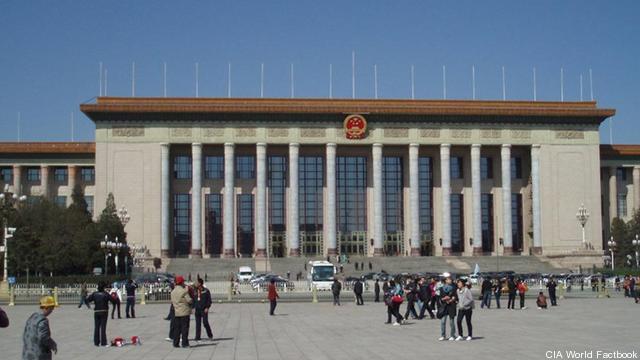
For years, American pundits and politicians have asserted that the People’s Republic of China was developing a high-tech shashou jian – sensationalistically translated as “assassin’s mace” – as a secret weapon against the United States. Ironically, though, it is the United States that has been fostering what could be a non-violent shashou jian against Chinese authoritarianism: lawyers.
The Chinese legal profession is changing in ways that unnerve the PRC’s mandarins — who recently required all lawyers to swear loyalty to the Communist Party in order to be licensed — and American influence is part of the reason why. In February, the Jessup International Law Competition – the largest and oldest international moot court event – held its tenth annual Chinese competition in Beijing.
Students from 38 Chinese law schools competed to go to the international finals this week in Washington, D.C. The speeches and discussions at the Beijing conference were as frank as they might have been in any country, addressing topics such as Syrian activism, the Iranian nuclear program, and even the house arrest of Chinese attorney-activist Chen Guangcheng. Chinese students had to analyze and argue principles of international law, including government sovereignty and international intervention to protect human rights – all in English – before panels of international judges.
The Ford Foundation, among others, has been working to bring modern legal education to China since the 1980s. While China’s legal system is among the oldest in the world, today it is a jumbled mix of traditional Chinese Confucian philosophy stressing social control, a European-influenced civil law system adopted in the early 1900s, and Soviet-style socialist law, all muddled by decades of disregard for legal process under Mao Zedong. With China now trying to catch up to the rest of the world, at warp speed, the legal system needs modernization badly – even if only to ease the international commercial interactions critical to China’s growing economy.
But the impact of legal modernization will go far beyond commercial fields. Law schools are proliferating in China. There are currently over six hundred programs granting law degrees – three times the number of accredited law schools in the United States, albeit for a population four times as large – and many of them have opened in just the last ten years.
The content of these programs is still evolving. Only recently, for example, have courses on legal research and writing been routinely offered; before, it was assumed students would learn those skills on the job. In another significant change, law students increasingly study Western philosophy, for comparative purposes, including the relationship between the individual and the state in the works of Locke, Rousseau, and Montesquieu – the seminal writings of modern democracy.
Nevertheless, the number of lawyers per hundred citizens remains far lower in China than in the United States, and being a lawyer just does not carry the same prestige and opportunity in China that it does in the United States. One Chinese law professor explained that he had two sets of business cards: one saying he is a professor, which he used within China, and one saying he is a lawyer, which he used abroad. Today, most Chinese lawyers and law students are women, marking law as a second-class profession in a still-sexist society, while men opt for more prestigious science and engineering careers.
It will take time to build up the legal profession, let alone to develop the rule of law. Ordinary Chinese first have to trust that the state will place legal norms above those of the entrenched authoritarian system. But law programs teach students how to think, how to question, and how to challenge. The rule of law teaches social responsibility. Official proclamations that human rights or environmental concerns must sometimes be suppressed “in the interests of the people” will be, and already are being, challenged more and more. Critical analysis does not bode well for passive acceptance of government rhetoric about what is “good for China.”
The rule of law does not and will not trump national interests in international politics. Even a fully democratic China would still have its disagreements with the United States. But a shared understanding of law creates common ground for dialogue, instead of countries simply talking past each other as too often occurs between democratic and authoritarian governments. It is in the interests of the United States to promote legal education in China wherever and however possible. Legal education can help achieve our national objectives as powerfully as any weapon system, and at far less cost.
Joan Johnson-Freese, a member of the AOL Board of Contributors, is an expert on U.S. military space, Chinese space and the PLA. She is a professor at the Naval War College and lectures at Harvard University.
China’s new H-20 stealth bomber ‘not really’ a concern for Pentagon, says intel official
“The thing with the H-20 is when you actually look at the system design, it’s probably nowhere near as good as US LO [low observable] platforms, particularly more advanced ones that we have coming down,” said a DoD intelligence official.


























